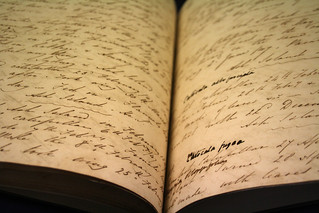Grace Emily Akinyi Ogot
Kenya's pioneering author and cultural empowerment advocate who bridged tribal traditions with modern African literature

One of Kenya's first black female pioneers of cultural empowerment, Grace Emily Akinyi Ogot masterfully explores the tensions between tribal customs and modern life in her literary works. Her writing captures the essence of African identity during a transformative period in Kenya's history.
Discover more African authors and book-centered history in the African Bookshelf Hub .
A Life of Many Careers
Born in Kenya's Central Nyanza district in 1930 to Christian parents, Grace Ogot began her professional journey as a nurse and midwife at Maseno Hospital and Makerere University College. Her diverse career path later included roles as a scriptwriter and broadcaster for the BBC, a community development officer in Kisumu District, and a public relations officer for Air India.
Demonstrating remarkable versatility, Ogot also ventured into entrepreneurship by opening clothing boutiques in Nairobi. Throughout these varied professional experiences, she maintained a consistent dedication to writing, establishing herself as a powerful literary voice.
Literary Pioneer
In 1966, Ogot published The Promised Land, a groundbreaking achievement that positioned her as one of Kenya's first generation of published writers in English and among the first black female Kenyan novelists. This landmark publication coincided with Nigerian author Flora Nwapa's Efuru, making 1966 a pivotal year for African women's literature.
Ogot's commitment to literature extended beyond her own writing. She was a founding member of the Writers' Association of Kenya, serving as its chairman from 1975 to 1980, where she championed the development of Kenyan literature and supported emerging writers.
Political and International Influence
Grace Ogot's influence reached beyond literature into international diplomacy and politics. In 1975, she was named a delegate to the General Assembly of the United Nations, followed by service as a member of the Kenya delegation to UNESCO in 1976.
Her political career culminated in 1984 when she served as a Member of Parliament and the only assistant minister for culture in the cabinet of President Daniel Arap Moi. At the time of this writing, Ogot was 84 years old and had been married for 55 years to Bethwell Allan Ogot, who is also a writer and politician.
Major Literary Works

Later Years and Legacy
Ogot recently published her autobiography, Days of My Life: An Autobiography, which provides personal accounts of her political challenges, including efforts to access President Daniel Arap Moi to organize fundraising meetings for her constituency.
The autobiography also reveals complexities in her political legacy, showing how Ogot faced criticism for not sufficiently improving the working conditions at the Kenya Cultural Center and Kenya National Theater during her tenure as Assistant Minister for Culture and Social Services.
Despite this criticism, Grace Ogot's literary contributions remain foundational to Kenyan and African literature, establishing important precedents for women writers and creating enduring works that continue to resonate with readers exploring the intersection of tradition and modernity in African societies.












